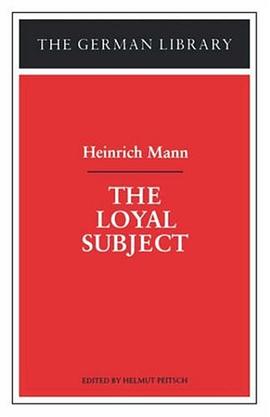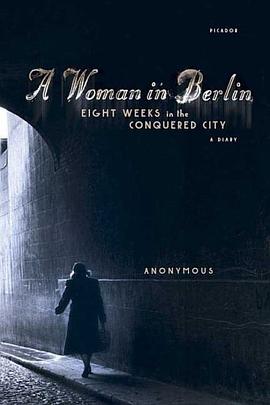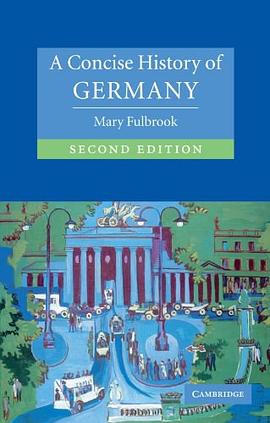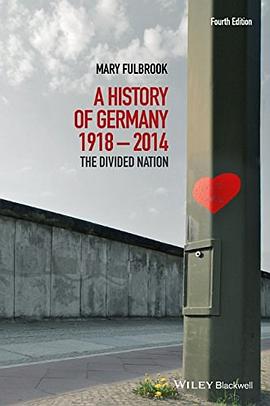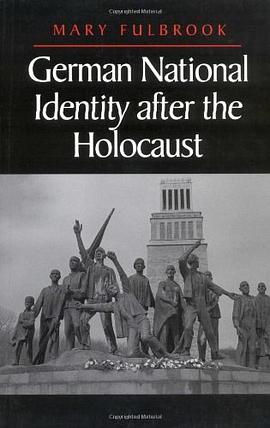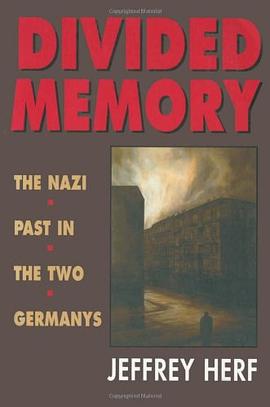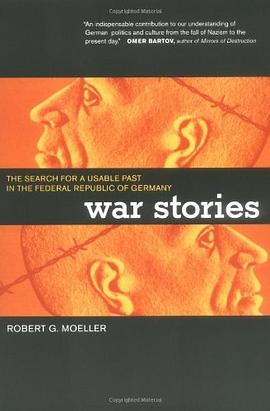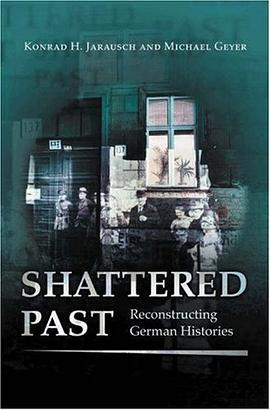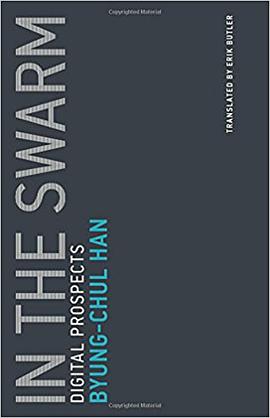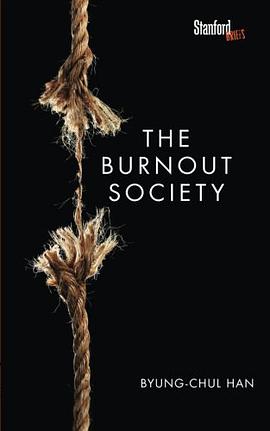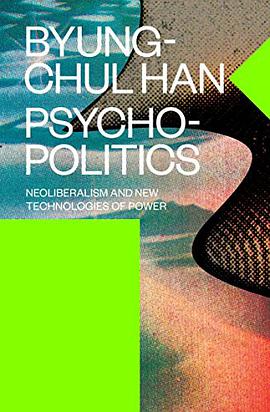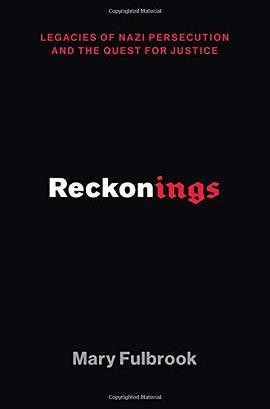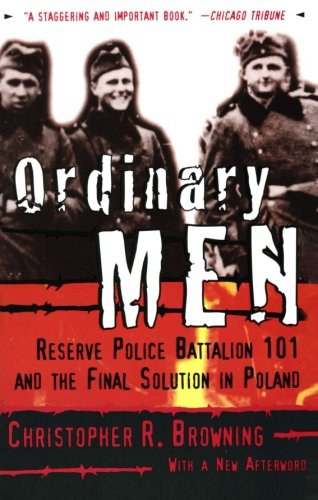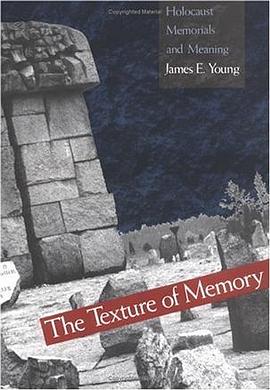德国
The Loyal Subject 豆瓣
作者:
Heinrich Mann
译者:
Helmut Peitsch
Continuum
1998
- 1
Published in 1918, Der Untertan by Heinrich Mann (1871-1950) - previously issued in the United States only in parts under the title "Man of Straw" - is a satirical novel that connects the tradition of nineteenth-century German literature with the larger problems faced on the eve of the Nazi era. This edition of The Loyal Subject is introduced and edited by Helmut Peitsch. The translation is adapted, with new portions translated by Daniel Theisen.>
A Woman in Berlin 豆瓣
作者:
Anonymous
译者:
Philip Boehm
Picador
2006
- 7
War & Genocide 豆瓣
作者:
Bergen, Doris L.
Rowman & Littlefield Pub Inc
A Concise History of Germany , Second Edition 豆瓣
作者:
Mary Fulbrook
Cambridge University Press
2004
- 3
The multi-faceted, problematic history of the German lands has supplied material for a wide range of debates and differences of interpretation. This second edition spans the early Middle Ages to the present day, synthesizing a vast array of historical material. Mary Fulbrook explores the interrelationships between social, political and cultural factors in the light of the latest scholarly controversies.
A History of Germany 1918-2014 豆瓣
作者:
Mary Fulbrook
Wiley-Blackwell
2014
Reverberations of Nazi Violence in Germany and Beyond 豆瓣
作者:
Stephanie Bird
/
Mary Fulbrook
…
Bloomsbury Academic
2016
- 2
Reverberations of Nazi Violence in Germany and Beyond explores the complex and diverse reverberations of the Second World War after 1945. It focuses on the legacies that National Socialist violence and genocide perpetrated in Europe continue to have in German-speaking countries and communities, as well as among those directly affected by occupation, terror and mass murder. Furthermore it explores how those legacies are in turn shaped by the present.
The volume also considers conflicting, unexpected and often dissonant interpretations and representations of these events, made by those who were the witnesses, victims and perpetrators at the time and also by different communities in the generations that followed. The contributions, from a range of disciplinary perspectives, enrich our understanding of the complexity of the ways in which a disturbing past continues to disrupt the present and how the past is in turn disturbed and instrumentalized by a later present.
The volume also considers conflicting, unexpected and often dissonant interpretations and representations of these events, made by those who were the witnesses, victims and perpetrators at the time and also by different communities in the generations that followed. The contributions, from a range of disciplinary perspectives, enrich our understanding of the complexity of the ways in which a disturbing past continues to disrupt the present and how the past is in turn disturbed and instrumentalized by a later present.
German National Identity after the Holocaust 豆瓣
作者:
Mary Fulbrook
Polity
1999
- 9
For over half a century, Germans have lived in the shadow of Auschwitz. Who was responsible for the mass murder of millions of people in the Holocaust: just a small gang of evil men, Hitler and his henchmen; or certain groups within a particular system; or even the whole nation? Could the roots of malignancy be traced far back in German history? Or did the Holocaust have more to do with European modernity? Should Germans live with a legacy of guilt forever? And how, if at all, could an acceptable German national identity be defined? These questions dogged public debates in both East and West Germany in the long period of division. Both states officially claimed to have "overcome the past" more effectively than the other; both sought to construct new, opposing identities as the "better Germany". But, in different ways, official claims ran at odds with the kaleidoscope of popular collective memories; dissonances, sensitivities and taboos were the order of the day on both sides of the Wall. And in the 1990s, with continued heated debates over past and present, it was clear that inner unity appeared to be no automatic consequence of formal unification. Drawing on a wide range of material - from landscapes of memory and rituals of commemoration, through private diaries, oral history interviews and public opinion poll surveys, to the speeches of politicians and the writings of professional historians - Fulbrook provides a clear analysis of key controversies, events and patterns of historical and national consciousness in East and West Germany in equal depth. Arguing against "essentialist" conceptions of the nation, Fulbrook presents a theory of the nation as a constructed community of shared legacy and common destiny, and shows how the conditions for the easy construction of any such identity have been notably lacking in Germany after the Holocaust. This book will be of interest to advanced undergraduate and postgraduate students in history, politics, and German and European Studies, as well as established scholars and interested members of the public.
Divided Memory 豆瓣
作者:
Jeffrey Herf
Harvard University Press
1997
- 10
What has Germany made of its Nazi past? This book explores the legacy of the Nazi regime, exposing the workings of past beliefs and political interests and how differently the two Germanys have recalled the crimes of Nazism, from the anti-Nazi emigration of the 1930s through the establishment of a day of remembrance for the victims of National Socialism in 1996. The author asks why would German politicians raise the spectre of the Holocaust at all, in view of the considerable depth of support its instigators and their agenda had found in Nazi Germany. Why did the public memory of Nazi anti-Jewish persecution and the Holocaust emerge, if selectively, in West Germany, yet was repressed and marginalized in "anti-fascist" East Germany? The book aims to answer this question and more, revealing the relationship between how the crimes of Nazism were publicly recalled and how East and West Germany separately evolved a Communist dictatorship and a liberal democracy. The author uses private and public papers and statements of key German figures to explore the subject and to place it within its historical context and the ideologies and experiences of pre-1945 German and European history to the Cold War.
War Stories 豆瓣
作者:
Moeller, Robert G.
University of California Press
2003
- 3
Robert G. Moeller powerfully conveys the complicated story of how West Germans recast the recent past after the Second World War. He rejects earlier characterizations of a postwar West Germany dominated by attitudes of "forgetting" or silence about the Nazi past. He instead demonstrates the "selective remembering" that took place among West Germans during the postwar years: in particular, they remembered crimes committed against Germans, crimes that--according to some contemporary accounts--were comparable to the crimes of Germans against Jews. Moeller draws on a wide range of U.S. and German government documents, political debates, film archives, letters, oral histories, and newspaper accounts.
Shattered Past 豆瓣
作者:
Konrad Hugo Jarausch
/
Michael Geyer
Princeton University Press
2003
- 1
Broken glass, twisted beams, piles of debris - these are the early memories of the children who grew up amidst the ruins of the Third Reich. More than five decades later, German youth inhabit manicured suburbs and stroll along prosperous pedestrian malls. "Shattered Past" is a bold reconsideration of the perplexing pattern of Germany's twentieth-century history. Konrad Jarausch and Michael Geyer explore the staggering gap between the country's role in the terrors of war and its subsequent success as a democracy. They argue that the collapse of Communism, national reunification, and the postmodern shift call for a new reading of the country's turbulent development, one that no longer suggests continuity but rupture and conflict. Comprising original essays, the book begins by reexamining the nationalist, socialist, and liberal master narratives that have dominated the presentation of German history but are now losing their hold. Treated next are major issues of recent debate that suggest how new kinds of German history might be written: annihilationist warfare, complicity with dictatorship, the taming of power, the impact of migration, the struggle over national identity, redefinitions of womanhood, and the development of consumption as well as popular culture. The concluding chapters reflect on the country's gradual transition from chaos to civility. This penetrating study will spark a fresh debate about the meaning of the German past during the last century. There is no single master narrative, no Weltgeist, to be discovered. But there is a fascinating story to be told in many different ways.
Facing the Nazi Past 豆瓣
作者:
Bill Niven
Routledge
2001
- 11
The Berlin Wall crumbled amidst fears that a united Germany might seek too quickly to put its Nazi past behind it, inaugurating a new era of triumphant nationalism. What happened instead was surprising: behind the flag-waving arose a more public, thoughtful, and realistic scrutiny of the country's horrific legacy than ever before seen in postwar Germany. Facing the Nazi Past shows how the readiness of a newly united people, combined with an explosion of media events, gave birth to a collaborative, determined effort to reexamine and accept the past.
The reunification of Germany brought an end to a certain way of looking at the Third Reich. As long as Germany was divided, guilt for National Socialism could be passed back and forth over the border. However with one Germany the past is now shard by all Germans, and if the country is to be psychologically as well as geographically united, then it will have to be on the basis of accepting a common past, both the good and bad.
Drawing on archival research, newspaper reports, and historical documents, Facing the Nazi Past casts a new light on the history and legacy of Nazism. Together, Germans are shaping a more inclusive memory of the past, and a more inclusive, pluralist society in the future.
The reunification of Germany brought an end to a certain way of looking at the Third Reich. As long as Germany was divided, guilt for National Socialism could be passed back and forth over the border. However with one Germany the past is now shard by all Germans, and if the country is to be psychologically as well as geographically united, then it will have to be on the basis of accepting a common past, both the good and bad.
Drawing on archival research, newspaper reports, and historical documents, Facing the Nazi Past casts a new light on the history and legacy of Nazism. Together, Germans are shaping a more inclusive memory of the past, and a more inclusive, pluralist society in the future.
The End of Loneliness 豆瓣
作者:
Benedict Wells
译者:
Charlotte Collins
Sceptre
2018
- 10
In the Swarm 豆瓣
作者:
Byung-Chul Han
译者:
Erik Butler
The MIT Press
2017
- 4
The shitstorm represents an authentic phenomenon of digital communication. -- from In the Swarm
Digital communication and social media have taken over our lives. In this contrarian reflection on digitized life, Byung-Chul Han counters the cheerleaders for Twitter revolutions and Facebook activism by arguing that digital communication is in fact responsible for the disintegration of community and public space and is slowly eroding any possibility for real political action and meaningful political discourse. In the predigital, analog era, by the time an angry letter to the editor had been composed, mailed, and received, the immediate agitation had passed. Today, digital communication enables instantaneous, impulsive reaction, meant to express and stir up outrage on the spot. "The shitstorm," writes Han, "represents an authentic phenomenon of digital communication."
Meanwhile, the public, the senders and receivers of these communications have become a digital swarm -- not a mass, or a crowd, or Negri and Hardt's antiquated notion of a "multitude," but a set of isolated individuals incapable of forming a "we," incapable of calling dominant power relations into question, incapable of formulating a future because of an obsession with the present. The digital swarm is a fragmented entity that can focus on individual persons only in order to make them an object of scandal.
Han, one of the most widely read philosophers in Europe today, describes a society in which information has overrun thought, in which the same algorithms are employed by Facebook, the stock market, and the intelligence services. Democracy is under threat because digital communication has made freedom and control indistinguishable. Big Brother has been succeeded by Big Data.
Digital communication and social media have taken over our lives. In this contrarian reflection on digitized life, Byung-Chul Han counters the cheerleaders for Twitter revolutions and Facebook activism by arguing that digital communication is in fact responsible for the disintegration of community and public space and is slowly eroding any possibility for real political action and meaningful political discourse. In the predigital, analog era, by the time an angry letter to the editor had been composed, mailed, and received, the immediate agitation had passed. Today, digital communication enables instantaneous, impulsive reaction, meant to express and stir up outrage on the spot. "The shitstorm," writes Han, "represents an authentic phenomenon of digital communication."
Meanwhile, the public, the senders and receivers of these communications have become a digital swarm -- not a mass, or a crowd, or Negri and Hardt's antiquated notion of a "multitude," but a set of isolated individuals incapable of forming a "we," incapable of calling dominant power relations into question, incapable of formulating a future because of an obsession with the present. The digital swarm is a fragmented entity that can focus on individual persons only in order to make them an object of scandal.
Han, one of the most widely read philosophers in Europe today, describes a society in which information has overrun thought, in which the same algorithms are employed by Facebook, the stock market, and the intelligence services. Democracy is under threat because digital communication has made freedom and control indistinguishable. Big Brother has been succeeded by Big Data.
The Burnout Society 豆瓣 Goodreads
作者:
Byung-Chul Han
Stanford Briefs
2015
- 8
Our competitive, service-oriented societies are taking a toll on the late-modern individual. Rather than improving life, multitasking, "user-friendly" technology, and the culture of convenience are producing disorders that range from depression to attention deficit disorder to borderline personality disorder. Byung-Chul Han interprets the spreading malaise as an inability to manage negative experiences in an age characterized by excessive positivity and the universal availability of people and goods. Stress and exhaustion are not just personal experiences, but social and historical phenomena as well. Denouncing a world in which every against-the-grain response can lead to further disempowerment, he draws on literature, philosophy, and the social and natural sciences to explore the stakes of sacrificing intermittent intellectual reflection for constant neural connection.
The Expulsion of the Other 豆瓣
作者:
Byung-Chul Han
译者:
Wieland Hoban
Polity Press
2018
- 3
Psychopolitics 豆瓣
作者:
Byung-Chul Han
译者:
Erik Butler
Verso
2017
- 11
Byung-Chul Han, a star of German philosophy, continues his passionate critique of neoliberalism, trenchantly describing a regime of technological domination that, in contrast to Foucault’s biopower, has discovered the productive force of the psyche. In the course of discussing all the facets of neoliberal psychopolitics fueling our contemporary crisis of freedom, Han elaborates an analytical framework that provides an original theory of Big Data and a lucid phenomenology of emotion. But this provocative essay proposes counter models too, presenting a wealth of ideas and surprising alternatives at every turn.
Reckonings 豆瓣
作者:
Mary Fulbrook
Oxford University Press
2018
- 10
A single word--"Auschwitz"--is sometimes used to encapsulate the totality of persecution and suffering involved in what we call the Holocaust. Yet focusing on a single concentration camp, however horrific the scale of crimes committed there, leaves an incomplete story, truncates a complex history and obscures the continuing legacies of Nazi crimes.
Mary Fulbrook's encompassing book explores the lives of individuals across a full spectrum of suffering and guilt, each one capturing one small part of the greater story. Using "reckoning" in the widest possible sense to evoke how the consequences of violence have expanded almost infinitely through time, from early brutality through programs to euthanize the sick and infirm in the 1930s to the full functioning of the death camps in the early 1940s, and across the post-war decades of selective confrontation with perpetrators and ever-expanding commemoration of victims, Fulbrook exposes the disjuncture between official myths about "dealing with the past" and the extent to which the vast majority of Nazi perpetrators evaded responsibility. In the successor states to the Third Reich -- East Germany, West Germany, and Austria -- prosecution varied widely. Communist East Germany pursued Nazi criminals and handed down severe sentences; West Germany, caught between facing up to the past and seeking to draw a line under it, tended toward selective justice and reintegration of former Nazis; and Austria made nearly no reckoning at all until the mid-1980s, when news broke about Austrian presidential candidate Kurt Waldheim's past. The continuing battle with the legacies of Nazism in the private sphere was often at odds with public remembrance and memorials.
Following the various phases of trials and testimonies, from those immediately after the war to those that stretched into the decades following, Reckonings illuminates shifting public attitudes toward both perpetrators and survivors, and recalibrates anew the scales of justice.
Mary Fulbrook's encompassing book explores the lives of individuals across a full spectrum of suffering and guilt, each one capturing one small part of the greater story. Using "reckoning" in the widest possible sense to evoke how the consequences of violence have expanded almost infinitely through time, from early brutality through programs to euthanize the sick and infirm in the 1930s to the full functioning of the death camps in the early 1940s, and across the post-war decades of selective confrontation with perpetrators and ever-expanding commemoration of victims, Fulbrook exposes the disjuncture between official myths about "dealing with the past" and the extent to which the vast majority of Nazi perpetrators evaded responsibility. In the successor states to the Third Reich -- East Germany, West Germany, and Austria -- prosecution varied widely. Communist East Germany pursued Nazi criminals and handed down severe sentences; West Germany, caught between facing up to the past and seeking to draw a line under it, tended toward selective justice and reintegration of former Nazis; and Austria made nearly no reckoning at all until the mid-1980s, when news broke about Austrian presidential candidate Kurt Waldheim's past. The continuing battle with the legacies of Nazism in the private sphere was often at odds with public remembrance and memorials.
Following the various phases of trials and testimonies, from those immediately after the war to those that stretched into the decades following, Reckonings illuminates shifting public attitudes toward both perpetrators and survivors, and recalibrates anew the scales of justice.
Ordinary Men 豆瓣
作者:
Christopher R. Browning
Harper Perennial
1998
- 4
The shocking account of how a unit of average middle-aged Germans became the cold-blooded murderers of tens of thousands of Jews.
The Texture of Memory 豆瓣
作者:
James E. Young
Yale University Press
1994
- 1
For the Germans and Austrians, memorializing the Holocaust has required public recognition of their crimes; for the Jews, it has required public expression of their suffering. As James Young brilliantly demonstrates, each monument is charged with the often highly problematic struggle between collective memory and national self-image, self-interest, and the aspiration toward a future. Through the memorials and monuments, Young illuminates the process whereby the meaning of the Holocaust continues to be redefined in each new generation in Europe, Israel, and America. This richly illustrated book is a groundbreaking study of the fusion of Holocaust memory and public art in contemporary life.

